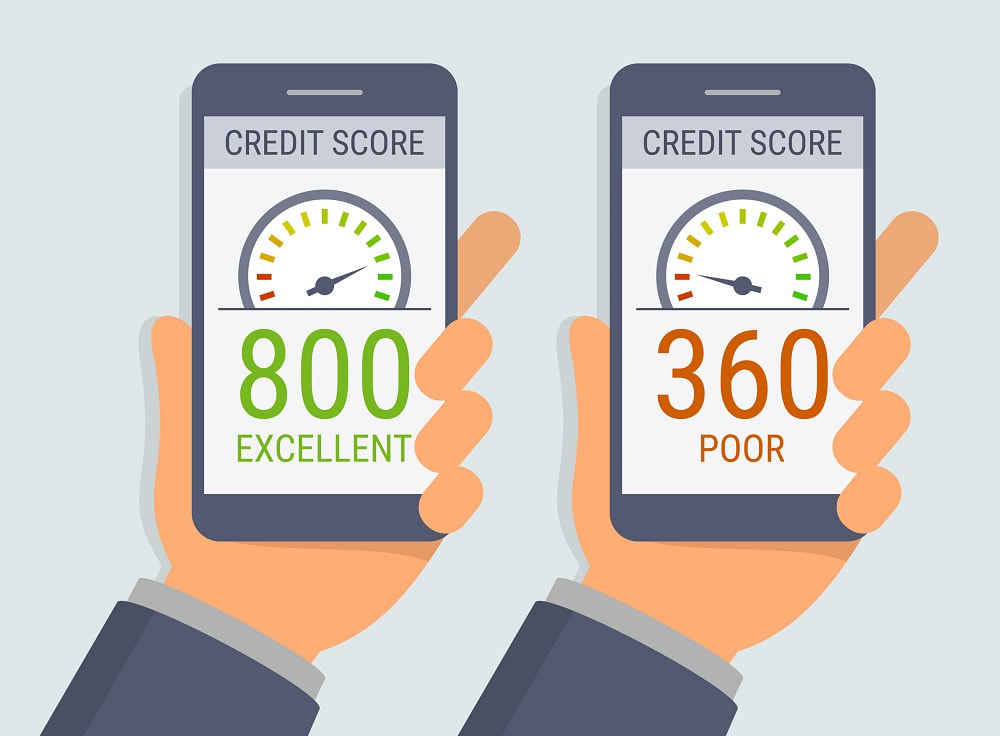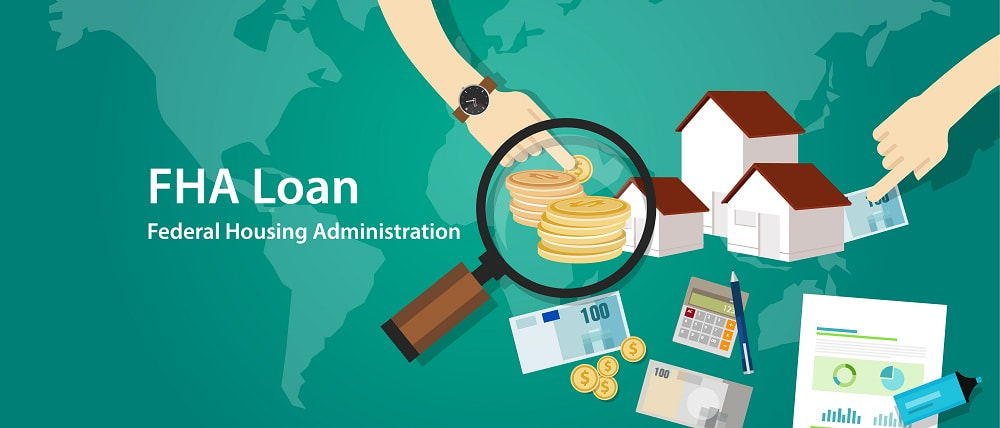Your diploma represents a vital step on the road to success. Next up: establishing a good credit history.If you’re a recent college grad, you’ve likely heard speeches about pursuing your passions and believing in yourself, but you probably haven’t heard much about establishing a good credit history. Here’s what you need to know. It matters — a lot Qualifying for mortgages, auto loans, apartments and even jobs has become dependent, to some degree, on your credit history. Find out where you stand The first step is knowing your current status. Access your credit report by visiting Annual Credit Report.com. Make sure all the information on the report is accurate, because errors can — and do — occur. Damaging discrepancies need to be corrected right away. Build a credit history Your credit history is one of the key factors making up your credit score, the all-important three-digit number that determines the rates you pay on everything from credit cards to mortgages to auto insurance. The best time to build a credit history is when you’re young, and the best way to start a credit history is to get a credit card. This may sound counterintuitive, but if you don’t have a credit card, the scoring system has no information to go on for assessing your creditworthiness, so you come across as a credit risk. Research credit card options While many of the major issuers offer cards geared toward new applicants with little or no credit history, you might stand a better chance of getting a card at a credit union. Size up your card options on a site such as LowCards.com. Gas cards and department store cards are also typically easy to get and can be a good place to start if your options are limited. Another possibility — especially if you don’t have any credit history or your credit is damaged — is to get a secured card. These cards work just like a regular credit card, except that you place a security deposit with the credit card issuer to obtain one. They typically require $200 or more for the deposit, and this amount becomes the credit line for the account. Use credit responsiblyThe way to keep your credit score high is to spend responsibly within your means. Don’t use more than 30 percent of your available credit, and pay off your balances in full and on time every month. Your payment history contributes to 35 percent of your credit score, so this point is important. Chip away at student loans Student loans are a form of debt, and are therefore taken into account as part of your credit score. And while you may be worried about a lender seeing all of this debt (likely tens of thousands of dollars), there’s no need to be concerned if you’re handling your finances properly. Just be sure you’re managing your debt obligations and repaying them on time, every time. On Point Homevestments
0 Comments
We shed some light on buying a home as a couple so you’re not in the dark when it’s time to sign on the dotted lines.When couples start a new journey as homeowners, questions can linger as to whose name (or names) should be listed on the mortgage and title. Many couples want a 50/50 split, indicating equal ownership to the asset, but sometimes that isn’t the best financial decision. Plus, with more than one person on the loan, the legalities of who owns the home can get tricky. A home is often the largest purchase a couple or an individual will make in their lifetime, so ownership can have big financial implications for the future. Title vs. mortgage For starters, it’s important to note the difference between a mortgage and a title. A property title and a mortgage are not interchangeable terms. In short, a mortgage is an agreement to pay back the loan amount borrowed to buy a home. A title refers to the rights of ownership to the property. Many people assume that as a couple, both names are listed on both documents as 50/50 owners, but they don’t have to be. Listing both names might not make the most sense for you. Making sense of mortgages For many, mortgages are a staple of homeownership. According to the Zillow Group Consumer Housing Trends Report 2017, more than three-quarters (76 percent) of American households who bought a home last year obtained a mortgage to do so. When a couple applies jointly for a mortgage, lenders don’t use an average of both borrowers’ FICO scores. Instead, each borrower has three FICO scores from the three credit-reporting agencies, and lenders review those scores to acquire the mid-value for each borrower. Then, lenders use the lower score for the joint loan application. This is perhaps the biggest downside of a joint mortgage if you have stronger credit than your co-borrower. So, if you or your partner has poor credit, consider applying alone to keep that low score from driving your interest rate up. However, a single income could cause you to qualify for a lower amount on the loan. Before committing to co-borrowing, think about doing some scenario evaluation with a lender to figure out which would make more financial sense for you and your family. True ownership If you decide only one name on the mortgage makes the most sense, but you’re concerned about your share of ownership of the home, don’t worry. Both names can be on the title of the home without being on the mortgage. Generally, it’s best to add a spouse or partner to the title of the home at the time of closing if you want to avoid extra steps and potential hassle. Your lender could refuse to allow you to add another person — many mortgages have a clause requiring a mortgage to be paid in full if you want to make changes. On the bright side, some lenders may waive it to add a family member. In the event you opt for two names on the title and only one on the mortgage, both of you are owners. The person who signed the mortgage, however, is the one obligated to pay off the loan. If you’re not on the mortgage, you aren’t held responsible by the lending institution for ensuring the loan is paid. Not on mortgage or title Not being on either the mortgage or the title can put you in quite the predicament regarding homeownership rights. Legally, you have no ownership of the home if you aren’t listed on the title. If things go sour with the relationship, you have no rights to the home or any equity. To be safe, the general rule of homeownership comes down to whose names are listed on the title of the home, not the mortgage. On Point HomevestmentsFollow these 10 tips to make the home-buying process a happy one.The arrival of spring means it’s time to start fresh. Along with pulling out your warm-weather wardrobe and tackling spring cleaning, you may have a bigger project on your to-do list: buying a new home. Before you start on your home-shopping journey, check out these 10 home buying tips to save you both time and money. Find the right agent Real estate expert Joe Manausa says the key to happy spring home buying is finding the most qualified agent to guide you through the process. With reviews available at your fingertips, finding a real estate agent you trust can be easy — provided you take the time to do some research. Check for agents with the best reviews, and give them a call. They’ll relieve some of the pressures of home buying, and walk you through all the necessary steps. Think location Sure, the three things that matter most in real estate are “location, location, and location.” Nonetheless, some buyers end up purchasing a home in a location that’s not right for them, simply because they make their choice for all the wrong reasons. “They’re looking at a house in the wrong area or the wrong school district, but they buy it because they like the kitchen,” Manausa says. Use the new open house The internet has completely changed the home-buying process, making it easier to choose which homes to go see in person. With 3-D tours available on the web, buyers can tour a home from their mobile device or a computer. Home buyers use online resources during their home search. Buy a home, not a project Buyers who purchase a fixer-upper can end up spending the same (if not more) than they would on a new home. “When buying a home, pay close attention to the ‘bones’ … and avoid getting caught up in the cosmetic features,” advises Dan Schaeffer, owner of Five Star Painting of Austin. If the kitchen cabinets are in good shape, but you want the space to be brighter, adding a fresh coat of paint is easier and less expensive than replacing all the cabinets. Ka-ching! Be a cash buyer Sellers are more likely to choose the buyer who already has money in hand over an offer that’s contingent on a mortgage loan. But if you can’t pay cash, getting pre-qualified for a loan can help the seller feel more confident that you’ll be able to secure financing. Avoid disaster — get a warranty The last thing you want after buying a home is for something to go wrong. You protect your car, so why not your home? Manausa recommends purchasing a home warranty: “[They’re] very affordable, and cover all the things that go wrong.” Your wallet will thank you. Make inspection time count Small problems eventually turn into big problems. The wood could rot, drains could leak, or the electrical panel may not be up to code. “Hire experts, and always get your home inspected,” adds Nathanael Toms, owner of Mr. Electric of Southwest Missouri. If the inspection reveals issues, be sure to deal with them effectively. For example, “it’s very important that a licensed electrician makes sure all circuits work properly,” say Dana Philpot, owner of Mr. Electric of Central Kentucky. Put safety first No matter the neighborhood or the home, your family’s safety should always be the number one priority after purchasing a home. “Even if the previous owner promised to return the copy of every key, it’s always a good idea to change the locks throughout the exterior of the home,” says J.B. Sassano, president of Mr. Handyman. “If the house has an alarm system, remember to change the code — and don’t forget the garage door.” Fix common repairs Repairs may come in the form of patching up small nail holes or weatherproofing electrical outlets. Whatever the need, Schaeffer recommends fixing the repairs before moving in your belongings. “An empty house is easier to maneuver and clean,” he says. For bigger jobs, find a professional to complete the repairs. Sites such as Neighborly can help you find home services providers. Add the finishing touches The best part about buying a new house is making it a home. Change the color of the walls, update the lighting, or add a more personal touch with a photo gallery wall. “It’s important to find the right gallery layout by measuring the wall space, which determines the size of photos you can use,” Sassano says. “Lightweight frames are the safest option, especially when hanging on drywall.” On Point HomevestmentsThroughout the approval process, push yourself to maintain your credit while lenders pull it.Navigating the purchase of a home can be overwhelming for first-time buyers. Lenders require documentation of seemingly every detail of your life before granting a loan. And of course, they will require a credit check. A question many buyers have is whether a lender pulls your credit more than once during the purchase process. The answer is yes. Lenders pull borrowers’ credit in the beginning of the approval process, and then again just prior to closing. Initial credit check for preapproval In the first phase of acquiring a loan, pre-qualification, you’ll self-report financial information. Lenders want to know details such as your credit score, social security number, marital status, history of your residence, employment and income, account balances, debt payments and balances, confirmation of any foreclosures or bankruptcies in the last seven years and sourcing of a down payment. This is only a portion of the total information needed for your mortgage application. Once you’re ready to get preapproved for a loan, lenders will verify your financial information. During this phase, lenders require documentation to confirm the information in your application and pull your credit history for the first time. You may be required to submit a letter of explanation for each credit inquiry in recent years, such as opening a new credit card, and for any derogatory information in your history, like a missed payment. Once you find a home within budget and make an offer, additional or updated documentation may be required. Underwriters then analyze the risk of offering you a loan based on the information in your application, credit history and the property’s value. Second credit check at closing It can take time for your offer to be accepted, and for your loan to pass underwriting. During this period from the initial credit check to closing, new credit incidents may occur on your history. Many lenders pull borrowers’ credit a second time just prior to closing to verify your credit score remains the same, and therefore the risk to the lender hasn’t changed. If you were late on a payment and were sent to collections, it can affect your loan. Or, if you acquired any new loans or lines of credit and used those credit lines, your debt-to-income ratio would change, which can also affect your loan eligibility. If the second credit check results match the first, closing should occur on schedule. If the new report is lower or concerning to the lender, you could lose the loan. Alternatively, the lender may send your application back through underwriting for a second review. It’s important for buyers to be aware that most lenders run a final credit check before closing, so the home-buying window is a time to prudently mind your credit. On Point HomevestmentsHome buying hurdles exist — but research, creativity and flexibility will help you clear them.Home buyers today face tough challenges — housing prices have soared, a dollar doesn’t go as far as it once did and rent is more expensive than the past. How are people today making such a large purchase despite these hurdles? With more flexibility and a bit of financing creativity, today’s buyers are finding ways to achieve homeownership. Know your options (and credit score) To even begin the home buying process, it’s important to know what resources are available. According to a 2017 Fannie Mae working paper, many Americans don’t have a strong, or even basic, understanding of what it takes financially to buy a home, nor if they meet the criteria. The first step to knowing if you can afford a home is figuring out what financing options are available to you, including what mortgages you’re eligible for and how much you need/can afford to put down upfront. Fannie Mae discovered that most buyers don’t know the minimum FICO score required by lenders and that 49 percent of buyers don’t even know what their credit score is. Home shoppers also aren’t sure how much they have to put down on a home, and about 40 percent are unsure of the lender-required minimum down payment. Plus, three-quarters of buyers don’t know about programs available to help with down payments, like FHA loans. Before buyers even start thinking about saving for a home, they should know what their financial resources are and if they’re eligible to buy. Make enough money to save With fewer resources to pull from than their older, wealthier counterparts, renters wanting to buy face tough financial headwinds. According to the Consumer Housing Trends Report 2017, renter households typically earn a median income of $37,500 annually, which is $50,000 less than the median household income netted by households who recently bought a home (of whom the median household income is $87,500 annually). While there are ways to enter into homeownership without making $87,500 in household income, it’s hard to afford to buy if you make significantly less. “If you’re making $37,500 per year, it’s probably not feasible for you to buy in almost any market,” says Chief Economist Dr. Svenja Gudell. Only 29 percent of Americans make $87,500 or more, per U.S. Census Bureau data. For perspective, only one of the top 10 most common jobs in the United States carries a salary above $37,500, meaning the jobs that the majority of Americans hold bring in less money than the median renter household. While households purchasing homes are more likely to have two incomes than renter households (and thus a higher median household income combined), even two-income households struggle to afford to buy in competitive markets. Save enough cash (but not as much as you think) One of the most daunting parts of home buying? The down payment. In fact, two-thirds of renters cite saving for a down payment as the biggest hurdle to buying a home, according to the Housing Aspirations Report. Per findings from the Consumer Housing Trends Report 2017, almost one-third (29 percent) of buyers active in the market express difficulty saving for the down payment. For people buying the national median home valued at $201,900, with the traditional 20 percent down payment, that’s $40,380 upfront — just to move in. “The down payment remains a hurdle for a lot of people,” says Gudell. “But they should know they don’t have to put 20 percent down.” Although putting down less than 20 percent means additional considerations, such as the cost for private mortgage insurance (PMI), some find it worth the hassle. In fact, only one-quarter of buyers (24 percent) put 20 percent down, and just over half of buyers (55 percent) put less than the traditional 20 percent down. Buyers are also getting creative about piecing together a down payment from multiple sources. According to the report findings, nearly 1 in 4 buyers (24 percent) build a down payment from two or more sources, including saving, gifts, loans, the sale of a previous home, stocks, retirement funds and other resources. Know your deal breakers, but be flexible To get into a home — even if it’s not the home of their dreams — some of today’s buyers are considering homes and locations outside of their initial wish list and getting increasingly flexible when it comes to neighborhood, house condition and even home type. Although single-family homes remain a dream for most home seekers, buyers today consider and buy condos and townhouses to secure a home in their ideal location. Buyers with household incomes under $50,000 are more likely to consider homes outside of the traditional single-family residence (40 percent), compared to those with incomes of $50,000 or above (24 percent). “I do think people get discouraged when they look in their target neighborhood and they see homes around $170,000 when they’re looking for a $110,000 home,” Gudell says. Affordably priced homes do, in fact, exist. But in popular areas, where people most often want to live, it’s going to be harder to find that cheaper home, Gudell says. “If you’re willing to take a longer commute and make a couple trade-offs, you might be able to find a home that is farther out that might be cheaper,” Gudell explains. “You have to leave the paved path before you can find cheaper choices.” On Point HomevestmentsBeing a first time home buyer is as much of a skill as it is a privilege. Not unlike every other skill you have managed to acquire up to this point, buying your first home should be met with an acute attention to detail and a mind for due diligence. If for nothing else, home buying skills can be honed to the point that the scales will tip in favor of those that are the most prepared. That said, there are absolutely things you can do and learn to make the home buying process a positive one. If that sounds like something you could get behind, here are some first time home buyer tips you can’t afford to ignore. First Time Home Buyer Tips You’d Be Foolish To Ignore Here are some of our favorite first time home buyer tips we feel everyone would be better off sticking to:
We want to make it abundantly clear: first time home buyer tips can range from the utterly useless to the invaluable. Those we hit on above lean towards the latter, but they are far from the only tips you should take to heart. Buying a home is a complex process that is made easier by understanding as much as you can. So in addition to what I spoke of above, do your best to educate yourself on the process. Common First Time Home Buyer Mistakes To Avoid Here are some of the most common first time home buyer mistakes, and how to avoid making them yourself:
First Time Home Buyer Qualifications First Time Home Buyer Credit Score The first time home buyer credit score is one of the most important indicators lenders use to gauge a borrower’s trustworthiness. It is the credit score, after all, that best defines a person’s history with borrowing. That said, it’s in the best interest of first time home buyers to have a credit score that meets the minimum requirements of today’s lenders. First time home buyers should have a credit score of at least 620 if they hope to receive a conventional loan, and a minimum credit score of 500 if they intend to qualify for an FHA loan. First Time Home Buyer Down Payment The first time home buyer down payment will depend largely on the type of loan in question. FHA loans, for example, require a down payment of at least 3.5% for those with a credit score of 580 or higher. If, however, you apply for an FHA loan with a credit score between 500 and 579, you will be required to pay at least 10% down. Conventional loans, on the other hand, will require a downpayment somewhere in the neighborhood of 5% and 20%, as long as you meet the minimum credit score requirement: 620. It is worth noting, however, that most lenders will require borrowers that pay less than 20% down to pay what is known as private mortgage insurance (PMI) — it’s the lender’s method of protecting themselves from defaulting borrowers. According to BankRate, “PMI fees vary from around 0.3 percent to about 1.5 percent of the original loan amount per year, depending on the size of the down payment and the borrower’s credit score.” First Time Home Buyer Loans And Grants Here are some of the most common first time home buyer loans and grants:
Not surprisingly, these are a few of the most common loans made available to today’s first time buyers. That said, there are more loans out there if you don’t see the one you like. First Time Home Buyer Mortgage Calculator Mortgage rates are constantly changing, which makes calculating your future mortgage a bit more challenging. Fortunately, there are several dependable sites that provide their own first time home buyer mortgage calculator for your convenience. Zillow, for example, has a simple, easy to use first time home buyer mortgage calculator that will help you identify your own payments. Of course, it’s worth pointing out that Zillow’s mortgage calculator (and all others) should only be used by those looking for a ballpark estimate. For a better idea of what you could expect your own mortgage to be, you should consult the bank you intend to borrow from. Only they will be able to give you the exact number you are looking for. Key Takeaways
On Point HomevestmentsA conventional mortgage is reserved for today’s “best” borrowers, or those traditional lending institutions view as less of a risk to default on a loan. It is worth noting, however, that conventional mortgages exist to help their originators as much as the borrowers, if not more so. You see, conventional mortgages are inherently risky for banks to approve, so it only makes sense that they’d only accept the best applicants, but what’s that mean for everyone else? It is about time you learn the ins and outs of a conventional mortgage, and exactly what it means for you. The Basics: What Is A Conventional Mortgage? Conventional mortgages are typically reserved for those borrowers with more than encouraging financial profiles. They are best suited for prospective borrowers with no blemishes on their credit reports and scores of at least 680. In other words, conventional mortgages are intended to service the least risky population of borrowers, and for good reason: conventional mortgages actually pose the most risk to lenders, as they aren’t backed by the government. Unlike their Federal Housing Administration (FHA) loan counterparts, conventional mortgages aren’t insured by the government, so lenders offering conventional mortgages are less inclined to take unnecessary risks. In addition to being reserved for those borrowers that represent the least risk, conventional mortgages will typically require a down payment somewhere in the neighborhood of three to 20% depending on the product being offered. It is worth noting, however, that those who don’t put down at least 20% will be required to pay what those in the business call private mortgage insurance (PMI). In attempt to make their investment even less risky, PMI will help offset the risk of so-called “safe” borrowers from defaulting on their loans. To be perfectly clear, a conventional mortgage is a risky move for most lenders because their “products” are not insured by the government. However, the risk of offering a loan that isn’t backed by the government is offset by strict underwriting; namely, higher credit scores, larger down payments and private mortgage insurance. Therefore, if you hope to qualify for a conventional mortgage, you should expect to be required to meet relatively strict requirements. Define Conventional As we already alluded to, a conventional mortgage is a home loan that’s not insured by the government. Whereas FHA loans are insured by the federal government, conventional mortgages are not. More specifically, “the federal government insures loans for FHA-approved lenders in order to reduce their risk of loss if a borrower defaults on their mortgage payments,” according to Zillow. Conventional mortgages, on the other hand, are not awarded the same luxury. Banks offering conventional mortgages are going to take more precautions when lending to borrowers since their loans aren’t insured. A conventional mortgage is essentially a way for banks to offset the risk associated with offering loans that aren’t backed by the government. “Conventional mortgages present the most risk for lenders since they are not insured by the federal government,” according to Investopedia. As a result, conventional mortgages are reserved for today’s best borrowers; those least likely to default on their mortgages. Conventional Mortgage Calculator While a conventional mortgage calculator can certainly be useful to those with all the required information, those without the supplemental data will find their calculations falling short. In other words, a good conventional mortgage calculator will account for everything from private mortgage insurance, property taxes, homeowners insurance, HOA dues, and other costs. Only once you have every variable will a mortgage calculation be helpful. That said, The Mortgage Reports has a conventional mortgage calculator that will account for everything you need to know now, and in the future. Conventional Mortgage Down Payment Due, in large part, to their “riskier” nature, conventional mortgages typically coincide with a larger down payment. It is not uncommon for the down payment on a conventional mortgage to rest somewhere between three and 20% It is worth noting, however, that the downpayment for a conventional mortgage comes with a significant caveat: whereas most people put down anywhere between three and 20%, those that don’t manage to put down at least 20% will be required to pay private mortgage insurance. That’s because the less a borrower puts down, the more of a risk they pose to the lender. Therefore, PMI is levied on anyone that doesn’t put down enough money at the start of a mortgage. The private mortgage insurance, as you may have already guessed, is intended to lessen the risk of borrowers that may default. Borrowers required to pay private mortgage insurance will continue to do so until their loan-to-value ratio reaches 80%. Conventional Loan Rates Conventional loan rates are far from universal, and tend to vary depending on three important factors: the amount put down, the loan originator and the market’s current conditions. According to Bankrate, however, “the average 30-year fixed mortgage rate is 4.70%, up from 4.64% last week. 15-year fixed mortgage rates increased to 4.16% from 4.07% this week.” A conventional mortgage is a great option for borrowers with a pristine credit history, but there’s a lot more to these traditional loans than most people realize. Traditional loans, most notably, represent a risk to lenders, but they target the best borrowers to offset said risks. Perhaps even more importantly, those that qualify for them stand to receive great terms. Key Takeaways
On Point HomevestmentsThe concept of the FHA loan was introduced in the 1930s when the United States was reeling from what would turn out to be the worst depression in American history. As the stock market crashed and the economy took a turn for the worst, defaults and foreclosures ran rampant. In response, the powers that be (the federal government) saw fit to provide lenders with peace of mind by insuring subsequent home loans. The resulting Federal Housing Administration (FHA) loans did their best to reduce lender risk and stimulate a struggling housing market, and their legacy lives on today. Not surprisingly, FHA loans are designed to promote homeownership amidst low-to-moderate income borrowers. And while we may not be facing the same financial crisis we were in the 30s, or even just a decade ago, borrowers should take solace in the fact that FHA loans are here to help. What Is An FHA Loan? The name says it all: an FHA loan is a mortgage issued by federally qualified lenders. Perhaps even more importantly, however, FHA loans are subsequently backed by the department of Housing and Urban Development (HUD). In other words, FHA loans are insured by the government, which begs the question: What does that really mean? Why is the federal government intent on insuring more loans? According to Investopedia, “the government created federally insured loans that gave mortgage lenders peace of mind, reduced lender risk and stimulated the housing market.” More specifically, government backed loans awarded lenders the ability to underwrite more mortgages for buyers that were previously ignored by lenders because of the risk of default they posed. You see, once the government decided to insure FHA loans, low-to-moderate income borrowers (or those with a less than attractive financial profile) could finally get the loan they needed to buy a home without making a significant down payment. More people could transition to homeownership and, in turn, help stimulate the economy. It is important to note, however, that FHA loans are insured for the lender, not the borrower. That’s an important distinction to make, as the FHA will assume responsibility for protecting the lender if the borrower neglects to keep their mortgage payments current. In the event a borrower does default on their mortgage, they are still at risk of a foreclosure, but the lender can rest assured, knowing full-well that the loan was insured by the government. FHA Loan Requirements
FHA loan requirements stray from those of their conventional counterparts because they are insured by the federal government. As a result, FHA loans a specifically tailored to help those with less than perfect financial profiles. That said, FHA loan requirements are not as strict as those that have become synonymous with conventional loans. Credit scores, for example, don’t need to be perfect to qualify for an FHA loan, but instead can be as low as 500. Of course, a borrower’s credit score will impact the amount they are expected to “put down” at the signing. Those with a credit score between 500-579 can obtain an FHA loan with a down payment of 10%. Those with a slightly better score (at least 580) could get away with a down payment as little as 3.5%. In addition to credit scores and down payments, FHA loan borrowers will need to demonstrate some level of financial competency; namely, that they are at least a couple of years removed from bankruptcy and three years removed from any foreclosures. These aren’t the only requirements to meet if you want to qualify for an FHA loan. For more information, please refer to the U.S. Department of Housing and Urban Development’s page on FHA loans. How To Apply For An FHA Loan
What First-Time Buyers Need To Know About Their FHA Loan
An FHA loan is the perfect solution for buyers with less than perfect financial profiles. More importantly, an FHA home loan awards prospective buyers the ability to make the transition to ownership, as they significantly lessen the burden of the dreaded down payment. That said, nobody is simply going to give you an FHA loan; you need to do the work yourself and make things happen. If you are interested in applying for an FHA loan, mind due diligence and learn everything you can about them; only then can I recommend moving forward. Key Takeaways
On Point Homevestments |
Details
Archives
February 2019
Categories
All
|
Company |
Services |
|
Possibilities

















 RSS Feed
RSS Feed